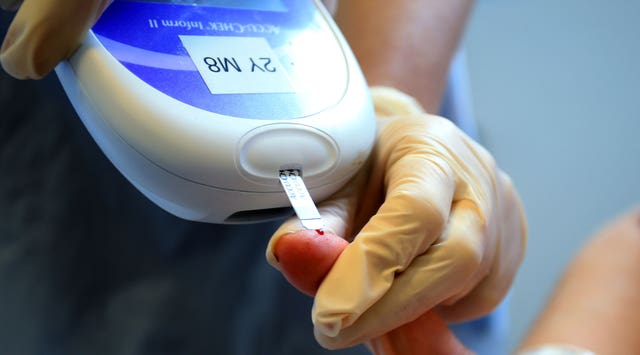Brushing teeth at least three times a day could lower diabetes risk – study
Improving oral hygiene may help people lower their risk of developing the disease, the authors said.

People who brush their teeth more than three times a day could be less likely to develop diabetes, a new study has implied.
Those with poor oral health are more likely to also suffer from diabetes, the research suggests.
The new study, published in the journal Diabetologia, collected data from almost 190,000 people from South Korea between 2003 and 2006.
Among the participants, 17.5% were found to have periodontal disease – diseased gums – which is associated with not brushing frequently.
After an average follow-up time of 10 years, diabetes had developed in 31,545 of the people monitored.
Those with periodontal disease were 9% more likely to have developed diabetes, the authors found after taking other various factors into account.

And people who had at least 15 missing teeth were 21% more likely.
But it was also found that people who brushed their teeth three times a day or more were 8% less likely to have developed diabetes.
When the South Korean researchers examined the differences between age groups they found that people aged 51 and younger were less likely to develop diabetes the more they brushed – brushing teeth twice a day was linked to a reduced risk of developing diabetes by 10%, while those who brushed three times a day had a 14% reduced risk.
Among those age 52 and older there was no difference in diabetes risk among those who brushed once or twice a day.
But those who brushed three times a day had a 7% reduced risk.
The authors wrote that, “the presence of periodontal disease and an increased number of missing teeth may be augmenting factors for the occurrence of new-onset diabetes”.
They added: “Improving oral hygiene may be associated with a decreased risk of occurrence of new-onset diabetes.”
The study did not differentiate between type 1 and type 2 diabetes.





